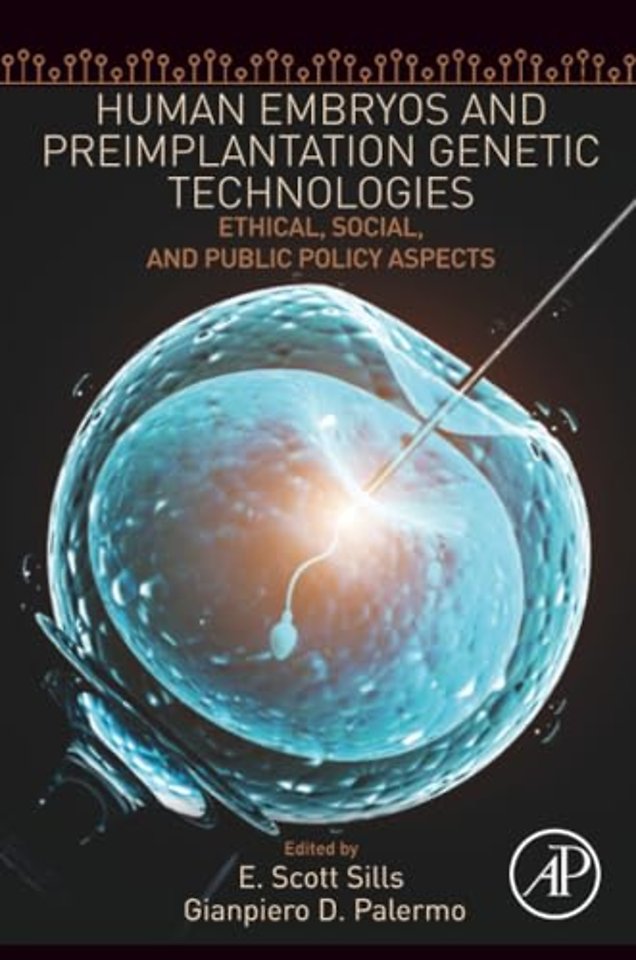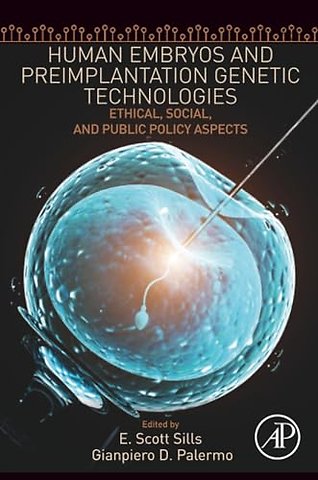1. The challenge for medical ethicists: Weighing pros and cons of advanced reproductive technologies to screen human embryos during IVF<br>Inmaculada de Melo-Martın<br>2. Too much information? The paradox of enlarging genetic datasets for human embryo assessment during in vitro fertilization (IVF)<br>Shachar Zuckerman and Gheona Altarescu<br>3. A new global perspective: Geographic variations in the use of preimplantation genetic technologies to screen human embryos<br>Alexander M. Quaas<br>4. Elective gender selection of human embryos during IVF: Ethical and public policy considerations<br>Gab Kovacs<br>5. Embryo mosaicism and its impact on IVF decisionmaking when using preimplantation genetic screening: Current challenges and controversies<br>Gon Shoham, Yuval Yaron and Ariel Weissman<br>6. Genetic counseling for preimplantation genetic testing (PGT): Practical and ethical challenges<br>Emily L. Mounts and Andria G. Besser<br>7. Psychological and interpersonal factors in preimplantation embryo assessment<br>Timothy Bracewell-Milnes, Jara Ben-Nagi and Meen-Yau Thum<br>8. Nonideal theory, self-respect, and preimplantation genetic technologies<br>Clair Morrissey and Elena Neale<br>9. Fate of non-transferred screened embryos from IVF: Current challenges and future directions<br>Alice J. Shapiro, Catherine Shea and Vitaly A. Kushnir<br>10. The Islamic perspective: Application of advanced reproductive technologies to screen human embryos during IVF<br>Gamal I. Serour and Ahmad G.I. Serour<br>11. An Orthodox Jewish approach to ethical and social aspects of embryo testing<br>Gideon Weitzman, Lior Segev and Benjamin David<br>12. The Australia experience: Cultural and political factors shaping human embryo assessment during in vitro fertilization<br>Brette Blakely, Tereza Hendl and Sheryl de Lacey<br>13. The Belgian experience: Cultural and political factors shaping preimplantation genetic diagnosis during in vitro fertilization<br>Guido Pennings and Heidi Mertes<br>14. The Brazil experience: Evolution and future trajectories of public health policy regarding human embryo assessment<br>Fernanda Souza Peruzzato and Juliana Cuzzi<br>15. The Chilean experience: Cultural and political factors shaping human embryo assessment during IVF<br>Fernando Zegers-Hochschild and Juan Enrique Schwarze<br>16. The Croatian experience: Cultural and political factors shaping human embryo assessment during assisted reproductive technology<br>Tamara Tramisak Milakovic and Ivana Milas Klaric<br>17. The Ireland experience: Cultural and political factors shaping the development of regulation of assisted human reproduction, ethical status of human embryos, and proposed regulation of surrogacy<br>Evelyn Mahon<br>18. The Thailand experience: Cultural and political factors shaping human embryo assessment during IVF<br>Patsama Vichinsartvichai<br>19. The Ukraine experience: Preimplantation testing of human embryos<br>Lyuda V. Shkrobot<br>20. Mitochondrial replacement therapy: Ethical, sociocultural, and public policy considerations<br>Shelley Dolitsky and Mark V. Sauer<br>21. Editing human reproduction? Legal and ethical aspects of genome editing<br>Judit Sandor<br>

